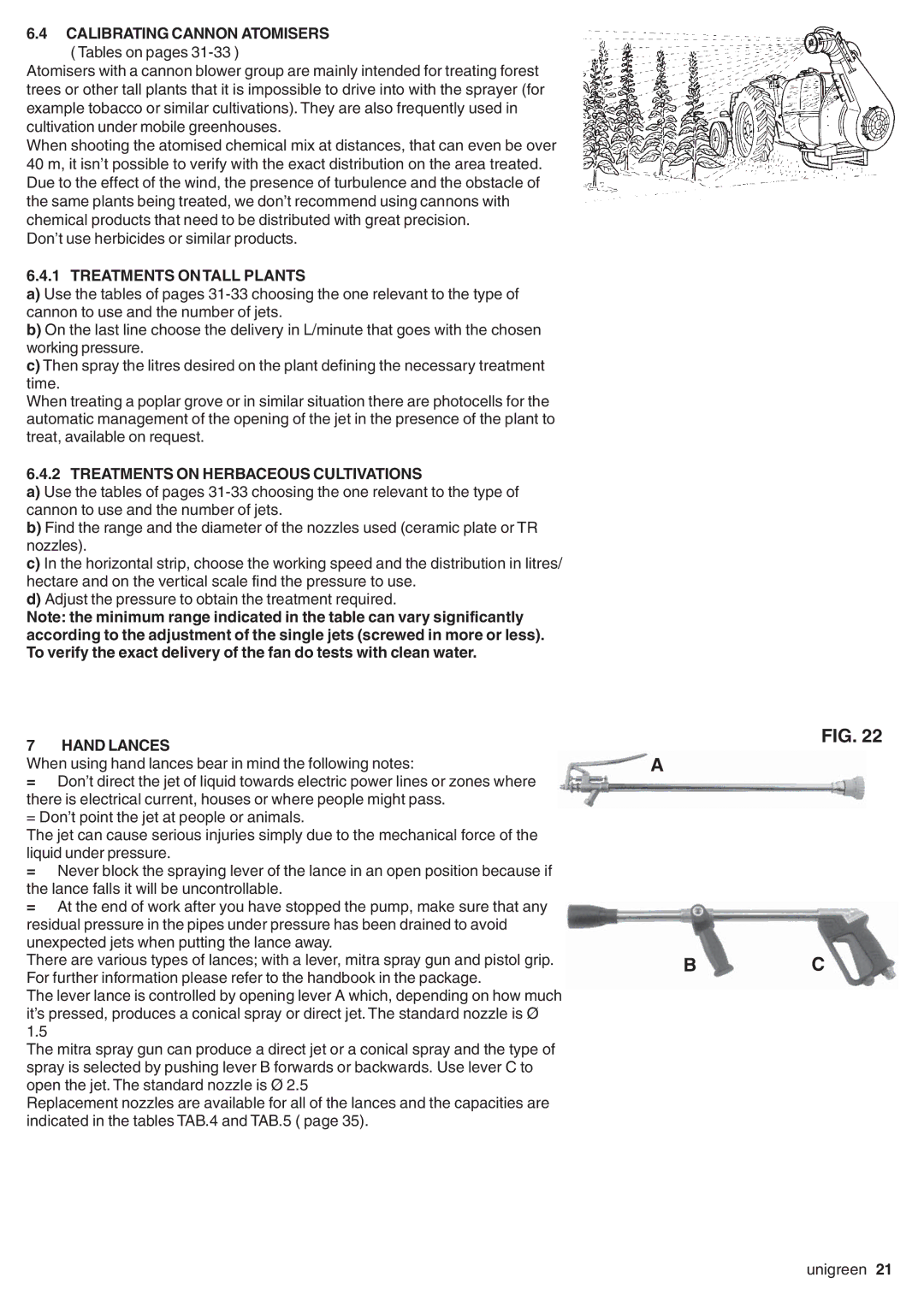LASER-FUTURA- EXPO series AT STD/TOP - AT BASE specifications
The Unigreen LASER-FUTURA-EXPO series, specifically the models AT STD/TOP and AT BASE, represents a groundbreaking advancement in the realm of agricultural technology. Designed for precision and efficiency, these laser-guided systems are engineered to meet the demands of modern farming practices. The LASER-FUTURA-EXPO series is synonymous with innovation and high performance, offering a range of features and technologies that enhance productivity.One of the standout characteristics of the AT STD/TOP model is its advanced laser guidance system. This technology allows for unparalleled accuracy in land leveling and grading, ensuring that the soil is prepared perfectly for planting. The integration of top-grade lasers significantly reduces human error and increases operational efficiency. For farmers, this means that crops can be established in an optimized environment, leading to healthier yields.
The AT BASE variant provides a cost-effective solution while still delivering essential laser-fueled functionalities. This model maintains the fundamental technologies of the series but offers a streamlined approach to achieving precision farming. Both models feature durable construction designed to withstand the rigors of outdoor use while providing operators with a user-friendly experience.
A notable technology incorporated into the LASER-FUTURA-EXPO series is its real-time monitoring capabilities. This allows farmers to track their operations seamlessly, making adjustments on-the-fly based on the live data collected. This feature significantly enhances decision-making processes, enabling proactive management of equipment and resources.
The ergonomic design of both the AT STD/TOP and AT BASE models facilitates ease of use, with intuitive controls that allow operators to focus on their tasks without unnecessary distraction. Additionally, maintenance is simplified, ensuring that downtime is minimized and productivity maximized.
In summary, the Unigreen LASER-FUTURA-EXPO series AT STD/TOP and AT BASE models epitomize modern agricultural innovation. With advanced laser guidance, real-time monitoring, and user-friendly design, these systems empower farmers to optimize their operations while promoting sustainable practices. As agriculture continues to evolve, products like the LA-SER-FUTURA-EXPO are at the forefront, enabling a new era of efficiency and productivity in farming.

